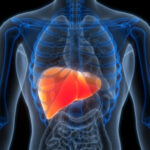-
August 22: The Week in Cancer News
A chemotherapy-releasing device helps destroy bladder cancer tumors, and long-distance running linked to increased risk for precancerous polyps.
by Thomas Celona
-
August 15: The Week in Cancer News
Some women over 70 may not need chemotherapy for high-risk breast cancer, and an early trial finds a pancreatic cancer vaccine can trigger an immune response.
by Marci A. Landsmann
-
August 8: The Week in Cancer News
A targeted therapy offers new treatment for a deadly brain cancer that mainly affects children, and more people in their 40s are getting screened for colorectal cancer.
by Marci A. Landsmann
-
August 1: The Week in Cancer News
Most liver cancers can be prevented, and a common type of HPV is linked to skin cancer.
by Eric Fitzsimmons
-
July 25: The Week in Cancer News
Doctors often don’t discuss sexual side effects with breast cancer survivors, and cardiac biomarkers may indicate increased risk for certain cancers.
by Thomas Celona
-
July 18: The Week in Cancer News
Less than half of people with advanced cancer undergo genomic profiling, and gastrointestinal cancer rates are rising dramatically in younger adults.
by Marci A. Landsmann
-
July 11: The Week in Cancer News
Steroids at the start of immunotherapy can negatively affect response, and colorectal cancer may lead to sexual side effects in women.
by Eric Fitzsimmons
-
July 3: The Week in Cancer News
Uterine cancer diagnoses expected to climb in the next 25 years, and some disposable e-cigarettes emit more carcinogens than traditional cigarettes.
by Thomas Celona
-
June 27: The Week in Cancer News
Low-dose aspirin reduces cancer risk for people with Lynch syndrome, and breast cancer survivors may have lower risk for Alzheimer’s than the general public.
by Thomas Celona
-
June 20: The Week in Cancer News
Surgery to remove fallopian tubes can lower ovarian cancer risk, and NIH staff cuts lead to delays for patients with no other treatment options.
by Eric Fitzsimmons
Cancer Talk
Treatment Combination Improves Survival in EGFR-positive Lung Cancer
Adding chemotherapy to targeted therapy improves outcomes for people with advanced EGFR-positive non-small cell lung cancer.
by Sandra Gordon
Lessons From 20 Years Living With CancerMultiple myeloma survivor Jonathan Gluck reflects on uncertainty, and the scientific progress that has kept him living with cancer for more than two decades.
by Eric Fitzsimmons
The Enduring Importance of Cancer Disparities ResearchOpening session from AACR conference highlights how perseverance and adversity have informed cancer disparities research over the years.
by Eric Fitzsimmons
Most Cancer Survivors Don’t Meet Healthy Diet GoalsDespite research linking fruits and vegetables to cancer survival, many people do not change their eating habits after diagnosis.
by Darlene Dobkowski














